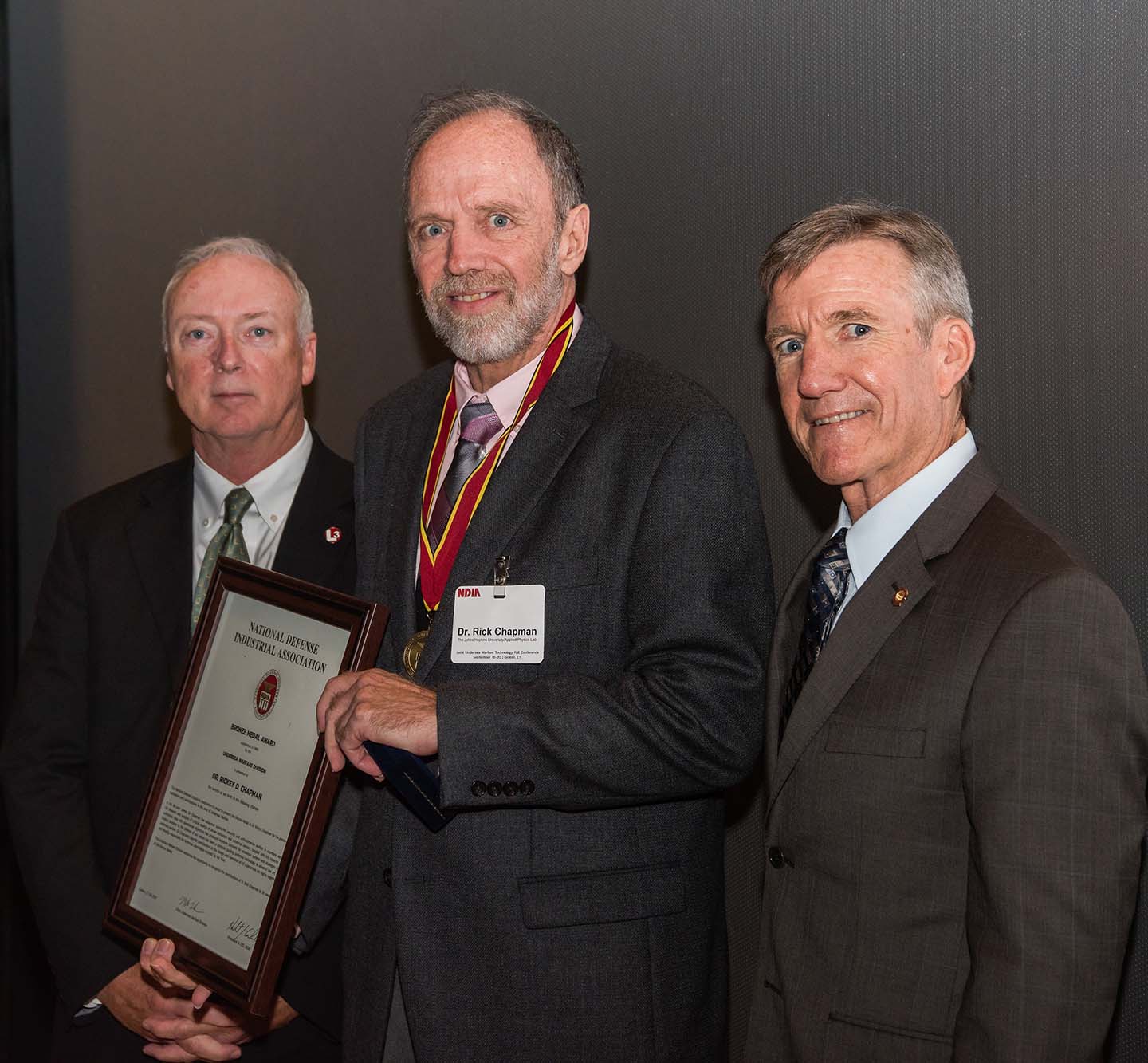Press Release
Johns Hopkins APL’s Rick Chapman Receives National Defense Industrial Association Bronze Medal
Mon, 11/06/2017 - 15:36
Rick Chapman, a chief scientist at the Johns Hopkins University Applied Physics Laboratory (APL) in Laurel, Maryland, has received a Bronze Medal from the National Defense Industrial Association (NDIA) Undersea Warfare Division.
Chapman is a chief scientist in the Laboratory’s Sea Control Mission Area, which focuses on the systems and technologies to defeat undersea threats and to project military power through effective undersea warfare operations.
NDIA is a defense and national security association whose Undersea Warfare Division enables the exchange of information between government and industry and also fosters the expansion of research and development in areas related to undersea warfare.
In a letter nominating him for the award, APL Director Ralph Semmel pointed to Chapman’s 40-year career at the Laboratory working in advanced submarine security and anti-submarine warfare.
“Dr. Chapman’s unique ability to clearly recognize and solve the key technical and operational issues has been instrumental in the efficient evaluation of several critical technologies resulting in their investigation, development, engineering, and introduction to the fleet,” Semmel said.
Chapman joined APL in 1977, just weeks after earning his bachelor’s degree from the University of Maryland. “While I took a job at APL because the work looked interesting and challenging, my motivations have changed over the years,” he said. “Now I work here because APL provides me the opportunity to contribute to the technical capabilities of the fleet, and I think our sailors deserve every technical advantage we can provide. Every day I feel like I am contributing to important work.”
He spent many years conducting oceanographic experiments, developing instrumentation and analyzing radar and oceanographic data, before assuming his current appointment as a chief scientist in 2011. In that role, he provides technical leadership, evaluates and assesses new concepts and technologies, and participates in and leads numerous remote sensing and hydrodynamic projects.
Chapman said that working with APL’s uniquely diverse workforce makes his job especially rewarding. “There are people on staff with great technical skills, but also retired military with a deep understanding of fleet operations and needs, along with highly experienced craftsman and technicians that make and field the instruments we use for our experiments,” he said. “I am proud to work for such an organization.”
The NDIA honor cites Chapman’s impact on the fleet and says, in part, “his tireless devotion to the defense of our nation has been a compass guiding undersea technology to advance the art of undersea warfare. Dr. Chapman’s specific contributions to the design and operation of U.S. submarines are highly regarded and directly responsible for technical advantages enjoyed by our fleet.”
Chapman holds a master’s degree in electrical engineering from Johns Hopkins and a Ph.D. in physical oceanography from Florida State.
